Consolidation of Drug Control Foundation
| Reports - Annual Report on Drug Control in China 2008 |
Drug Abuse
Consolidation of Drug Control Foundation
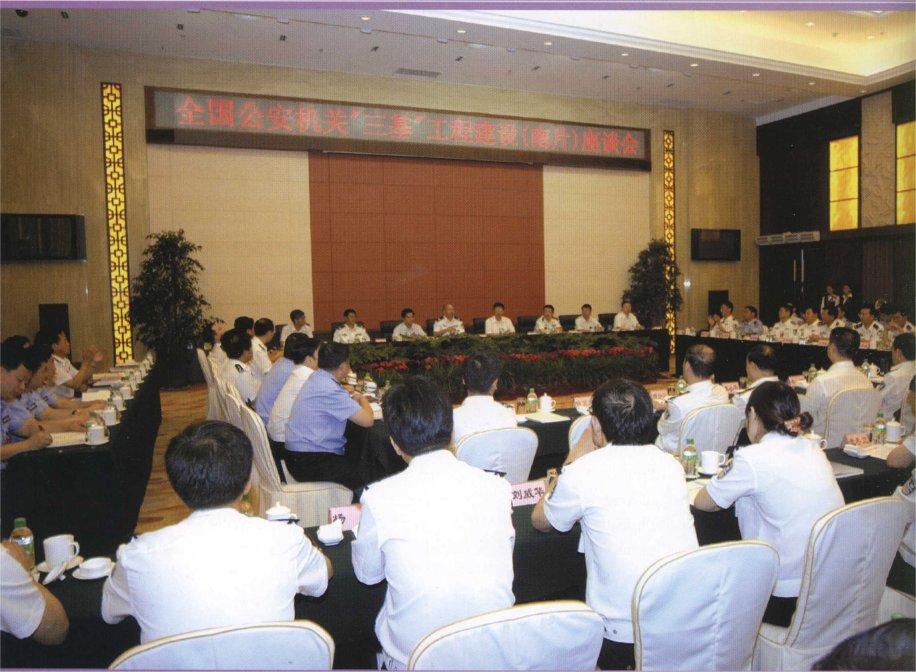
China persisted in the principle of "strengthening the frontline forces and making practical efforts", thoroughly promoted the activity of "supporting fromtline forces, consolidating the foundation and building up basic skills", enhanced the relevant working level, and facilitated drug control in terms of professionalism, legislation, science and technology, as well as socialization.
The Narcotics Control Law of China was adopted, the narcotics control legislation effected an obvious breakthrough

On December 29, 2007, the Narcotics Control Law of the People's Republic of China (hereinafter referred to as "the Law") was examined and adopted by the 31st session of the Standing Committee of the 10th National People's Congress, which will enter into force on June 1st, 2008. The promulgation and implementation of the law will play an important role in preventing and combating drug offences and crimes, safeguarding the public order and protecting the physical and psychological health. The law consisted of seven chapters with seventy-one articles, including general principles, drug control publicity and education, drug control, drug treatment measures, drug control international cooperation, legal responsibilities, and supplemental articles. The chapter on drug control publicity and education established the "general principle of prevention as the main measure, comprehensive control, and attaching equal importance to the fight against drug plant cultivation, drug manufacture, drug trafficking and drug abuse".

The law clarified the legal status of drug rehabilitation centers, made an important reform on the drug treatment working mechanism, and prescribed the basic drug treatment procedures including community treatment, compulsory seclusion treatment and community rehabilitation. In order to ensure the Law to be implemented smoothly and timely, the Office of NNCC organized the drafting of "Drug Treatment Regulations" and other supporting regulations.
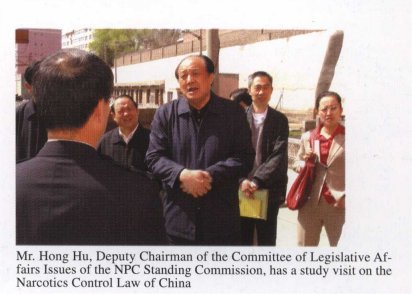
China explored and enhanced actively the establishment of drug control legislation. To solve some prominent problems encountered in the practice of dealing with drug criminal cases, the Supreme People's Court, the Supreme People's Procuratorate and the Ministry of Public Security jointly promulgated the "Opinions on the Application Problems of Drug Cases", it made clear and concrete regulations on the conviction and punishment determination of crimes on new-type drugs, as well on the identification of drug purity. It solved a number of legal problems that had restricted drug law enforcement for many years, and provided powerful legal tools for the frontline law enforcement agencies. NNCC drafted the "Quantity Standards on the Conviction and Punish Determination of Crimes related to Precursor Chemicals" (draft), and laid foundation for the relevant legal explanation of precursor control laws.
Strengthening the application reform of drug control information system, bringing into full play the practical effects of the information system
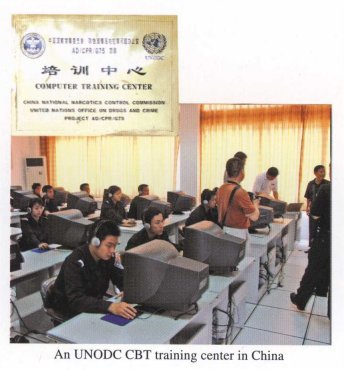
The international advanced training resources were fully utilized to conduct training of practical skills. The Office of NNCC set up UNODC's computer-based training (CBT) software in the narcotics control, border control and customs agencies of Fujian and Guangdong Provinces as well as in the police academies of Beijing and Kunming. The computer-based training for narcotics control police had promoted the practical level of drug law enforcement. Guangdong Province took the CBT training as a routine and standard arrangement, established 7 training sites and had trained 2325 frontline drug enforcement officers of public security, border control, railway, airport and customs agencies.
Implementing the project of drug control foundation consolidation, endeavoring to enhance the working level
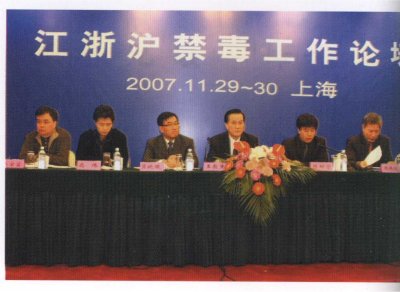
The Ministry of Public Security developed the "Opinions on the Consolidation of Drug Control Foundations", "Implementation Plan on the Promotion of Basic-Skill-Practicing Activities" and "Implementation Opinions on the Test of Basic Legal Knowledge for Narcotics Control Agencies", proposed the opinions and measures to promote foundation consolidation projects in public security agencies. All levels of public security narcotics control agencies strengthened training efforts, organized policemen to practice basic skills painstakingly, and struggled to enhance the drug enforcement capability and drug control administration level. The Office of NNCC and the State Postal Administration jointly organized two training courses on checking drugs in the postal channels, which was held in Kunming of Yunnan Province and Dongguan and Guangdong Province respectively. Heilongjiang Province held a provincial competition on drug control working knowledge. Sichuan Province held 6 special training courses. Jiangsu Province established a mechanism to select, train and encourage criminal investigation talents; four policemen were examined and approved as the first group of drug investigation experts. Guangdong Province established a database of drug control training teachers.
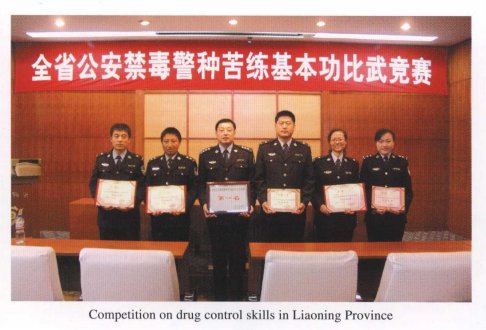
With the support of the Ministry of Science and Technology, the Ministry of Public Security and the Office of NNCC launched the project of "Research on the Key Technologies to Contain Drug Offences and Crimes", which was listed in the national science and technology support programme of the 11th Five-Year Development Plan of China. The Project consisted of eight topics, which were assumed respectively by China Science Academy, Beijing University, the research institutes and the colleges of the Ministry of Public Secu-rity as well as the research institutes of provincial public security agencies. The narcotics control agencies of all places provided vigor-ous support and safeguard on the collection of specimens and samples.
The research achievements of the project will provide technological support for the comprehensive monitor of drug situation, the grasp of drug control intelligence, the scientific evaluation of the practical effects of drug control operations, and the implementation of drug control laws and regulations.
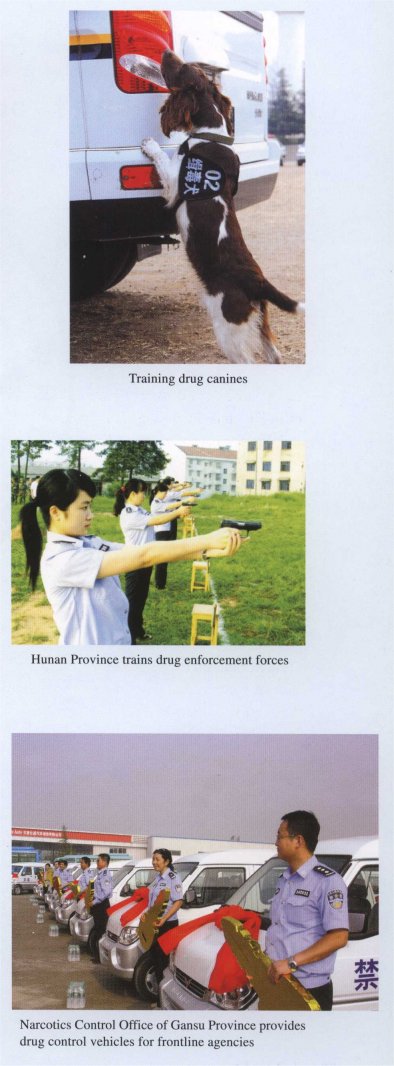
Enhancing the safeguarding level on drug
The Office of NNCC completed the allocation of drug control special subsidy funds of 2007 to local places, and strived for local drug control special funds, local infrastructure construction subsidy funds and the relevant funds of Narcotics Control Intelligence and Technology Center (NCITC) of the Ministry of Public Security in 2008 and the future years. The office of NNCC accomplished the government purchase of drug control equipments, furnished drug check and interdiction equipments for the six border provinces and autonomous regions, and completed the site selection, feasibility report, internal structure setup report and relevant examination and review work of NCITC. The construction of NCITC was accelerated.
| < Prev | Next > |
|---|












